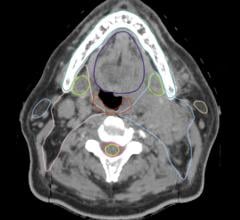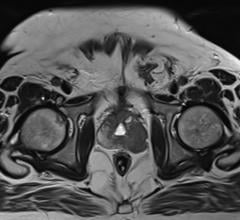
November 8, 2017 — The American Society for Radiation Oncology (ASTRO) called on the Centers for Medicare and Medicaid Services (CMS) to move forward urgently with the development of a radiation oncology alternative payment model (RO-APM) following a new report to Congress from the Center for Medicare and Medicaid Innovation (CMS Innovation Center). The CMS Innovation Center report outlines important payment model design considerations for implementing an Advanced APM in radiation oncology. ASTRO believes the report recognizes the key model design elements and provides a viable path forward to ensure the field of radiation oncology can be at the forefront of efforts to improve treatment quality and lower costs for cancer patients and the healthcare system.
The CMS Innovation Center report, “Episodic Alternative Payment Model for Radiation Therapy Services,” was requested by Congress as part of the ASTRO-supported Patient Access and Medicare Protection Act (PAMPA) of 2015. In addition to the report on an APM for radiation oncology, this bipartisan legislation, which was passed unanimously by Congress, brought much-needed stability to community-based radiation oncology clinic reimbursement by freezing payments for key radiation therapy services at 2016 levels through December 2018. Agreeing to an Advanced APM before the Jan. 1, 2019 expiration of the PAMPA freeze will enable CMS, Congress and the radiation oncology community to avoid the looming payment cliff.
“The field of radiation oncology is a proven and needed component of comprehensive cancer treatment and is well-positioned to lead efforts to enhance the value of cancer care. We are pleased that the CMS Innovation Center’s report provides us with a thoughtful and actionable roadmap, and we look forward to working expeditiously with CMS on model implementation prior to the PAMPA expiration,” said Brian Kavanagh, M.D., MPH, FASTRO, chair of ASTRO’s board of directors. “We believe the CMS model report aligns very well with our proposed RO-APM, which would incentivize the appropriate use of cancer treatments that result in the highest quality of care and best patient outcomes. We appreciate the CMMI’s advice and guidance throughout the development of the model, and are confident that we can work together to move away from the limitations and instability of traditional fee-for-service Medicare payments.”
The CMS Innovation Center report to Congress describes the provision of radiation therapy services, why Medicare beneficiaries may need radiation therapy services and how Medicare pays for these services. The report also describes several APM design considerations, including the type of alternative payment model; how the model is expected to result in clinical practice transformation; the rationale for such a model; the potential scale; its alignment with other initiatives; how the model may measure improved clinical quality and patient experience; and how readily providers may participate. The report also notes that the model could also address many of the challenges with the current payment systems, potentially generating more year-to-year stability in radiation therapy payments.
Each year, 1.6 million Americans are diagnosed with cancer, and about two-thirds — more than one million patients — will be treated with radiation therapy to cure or palliate their disease. To better serve this complex patient population and have a meaningful and viable opportunity to participate in payment reform as envisioned under the Medicare Access and CHIP Reauthorization Act (MACRA), ASTRO worked with the radiation oncology community, including representatives from freestanding centers and hospital-based practices, to develop an APM that meets the requirements for an Advanced APM under MACRA.
The RO-APM incentivizes physicians to assume accountability for controlling the total cost of spending related to the condition. The RO-APM applies to major disease sites treated with radiation therapy, creating an episode-based payment that begins with clinical treatment planning and concludes 90 days after the last radiation treatment. Throughout the process, healthcare participants must adhere to nationally accepted clinical treatment guidelines and other quality improvement requirements. A description of the model is available on ASTRO’s website.
For more information: www.astro.org


 April 22, 2024
April 22, 2024 








